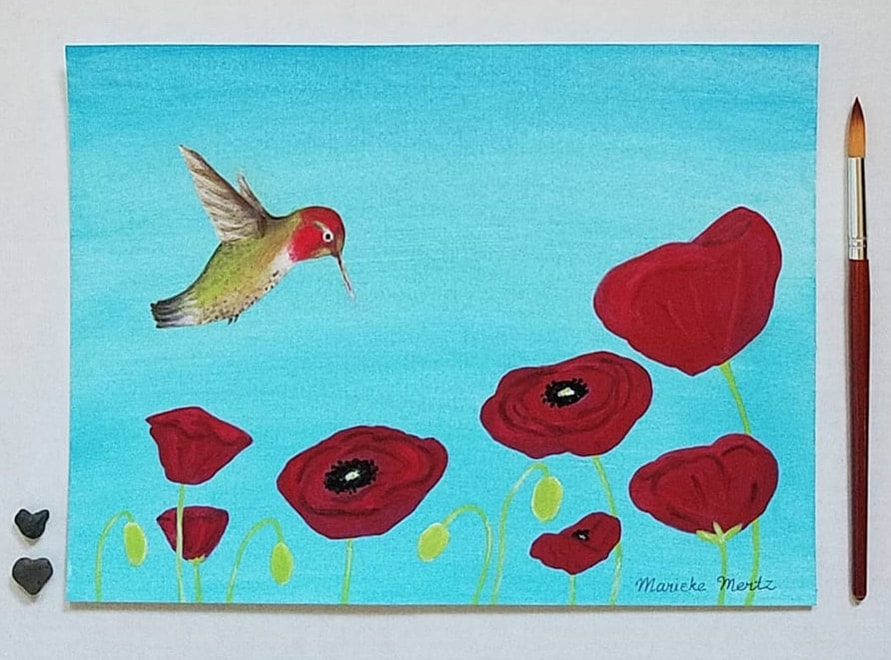|
Zip! Zoom! When we think of hummingbirds, we often think of how fast they can fly! As you can imagine, flying fast takes a lot of energy!
So when one of the members of the hummingbird group I recently started on Facebook asked “do hummingbirds sleep?” I thought it was an excellent question. I mean, I’m certainly tired and ready for sleep at night after a busy day!
Well, the answer to this question is: yes! Yes, they do sleep. In fact, they have a special sleep called torpor. Although torpor is not the same as our sleep which uses much more energy and has many restorative functions. During torpor, the hummingbird’s body temperature lowers, their breathing rate slows down considerably, their heart rate drops and so does their metabolic rate. These things can be very helpful to the hummingbird during certain times but torpor also puts the hummingbird at risk of predation.
Because it can take up to an hour to awaken from torpor, this state is not meant for power naps during the day! Hummingbirds sleep from dusk until dawn, waking up from torpor an hour or so before dawn. They’re diurnal which means they’re active during the day. However, hummingbirds may go into torpor during cold spells even during the day. With their small body size and lack of insulating downy feathers, torpor helps them survive the cold by lowering their body temperature.
Due to their insanely high metabolism, hummingbirds have a ferocious appetite and need to keep eating all day long in order to stay alive. So basically, by slowing down their metabolic rate, they can make it through the night!
Ever wondered where hummingbirds sleep at night? They don’t really use bird houses but instead often choose a twig or a branch in a tree near a food source. They sleep alone, not with other hummingbirds. One exception is when a mama bird is taking care of her chicks on her nest.
I hope you enjoyed reading about hummingbirds in this blog post. They’re such amazing birds!
As I mentioned, I recently started a new Facebook group all about hummingbirds, specifically for people living in Washington State, Oregon or California. If you live in these West Coast states, please consider joining our group by clicking here.
Also, if you’re curious about anything else related to hummingbirds, please let me know. You can either leave me your question in the comments or reach out to me via email at [email protected]. If you liked this blog post, sharing on social media would help others to find it!
Thank you for following my journey!
0 Comments
Leave a Reply. |


